This International Women’s Day discover a catalyst moment in the history of women and the city of Oxford. Told through an exhibition-like presentation of archival materials held in The Women’s Library, LSE, Dr Gillian Murphy, the library’s Curator for Equality, Rights and Citizenship explores the occasion of the first Women’s Liberation Conference, deemed a momentous event for women’s equality in the UK.
On 1 March 2020, an event was held at Somerville College, Oxford, organised by the Feminist Library and Archives Network, which was 50 years to the day since the first women’s liberation conference in Oxford, and I was lucky enough to attend. We were treated to a screening of Sue Crockford’s ‘A Woman’s Place’ (1971). This was Sue’s first film and documents the women’s liberation conference in Oxford and the first women’s liberation march. As part of the British Library’s ‘Sisterhood and After’ project, Sue was interviewed about making the film.
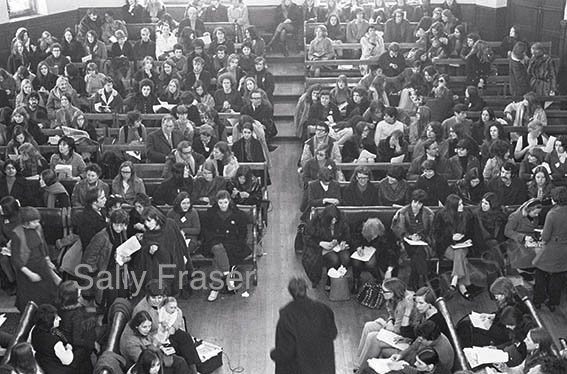
The film is very moving, particularly as I was watching it in Oxford, listening to the young and older women talking about their hopes and fears about their lives and about what they wanted to change.
At the Women’s Library, we hold many papers of women who were active in the women’s liberation movement, such as Anna Davin, Sheila Rowbotham and Sally Alexander. These three women were involved in organising the first women’s liberation conference, which was initially to be held at Ruskin College but was relocated to the Oxford Union because of the numbers of women attending.
The main business of the conference took place on Saturday 28 February and Sunday 1 March 1970. The programme was divided into three main sections: the social role of women; women and the economy; and women and revolution. There was an informal discussion on Saturday evening and a concluding session called ‘Where are we going?’ Both of these sessions were closed to men.
Groups and organisations were asked to contribute brief discussion papers about their present work and some of these papers have survived. What follows is a look at some of these typescripts.
‘The Myth of Inactivity’
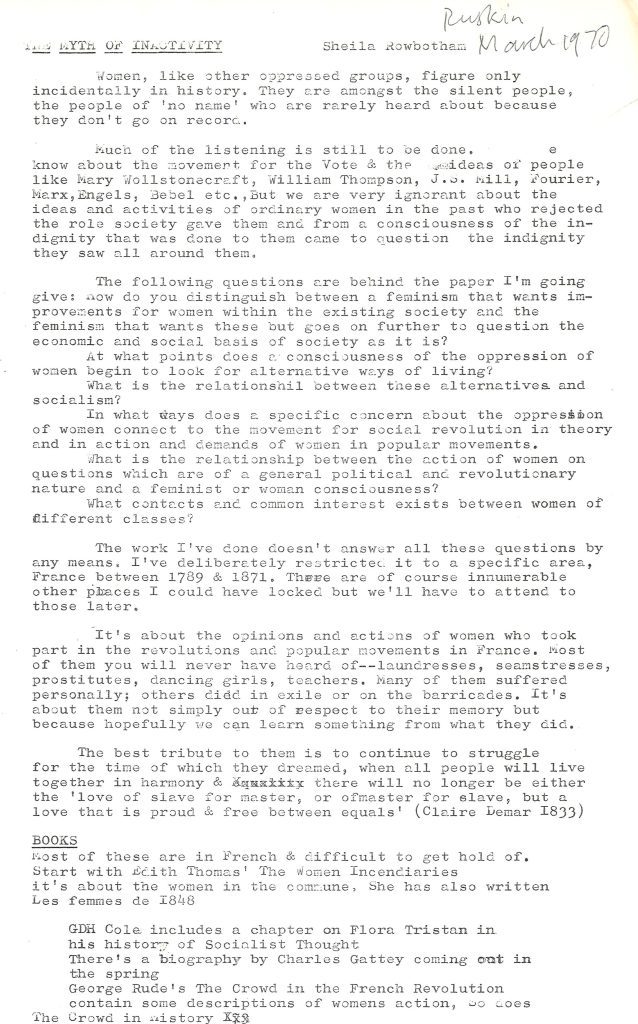
Sheila Rowbotham, academic and activist, was involved in the History Workshop movement, along with Sally and Anna, which emerged at Ruskin College under Raphael Samuel during the 1960s. The History Workshop movement envisioned history from the perspective of ordinary people rather than the elite and tried to move the study of the past beyond academia into public gatherings which anyone could attend.
This is where the idea for the women’s liberation conference came from.
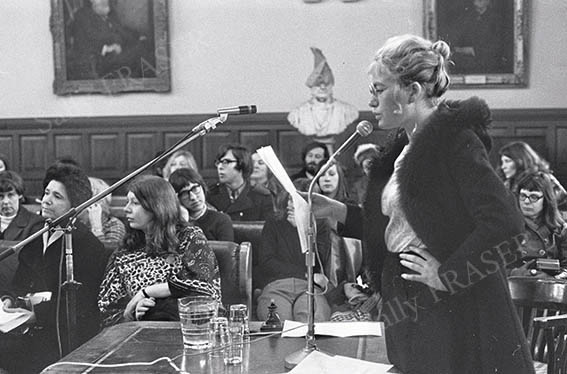
Sheila’s paper wanted to discover the hidden histories of ordinary women:
‘They are amongst the silent people, the people of ‘no name’ who are rarely heard about because they don’t go on record.’
She then lists questions that she wanted to address. Here are two of them: ‘At what point does the consciousness of the oppression of women begin to look for alternative ways to live?’, ‘What contacts and common interests exist between women of different classes?’ The typescript concluded with some references.
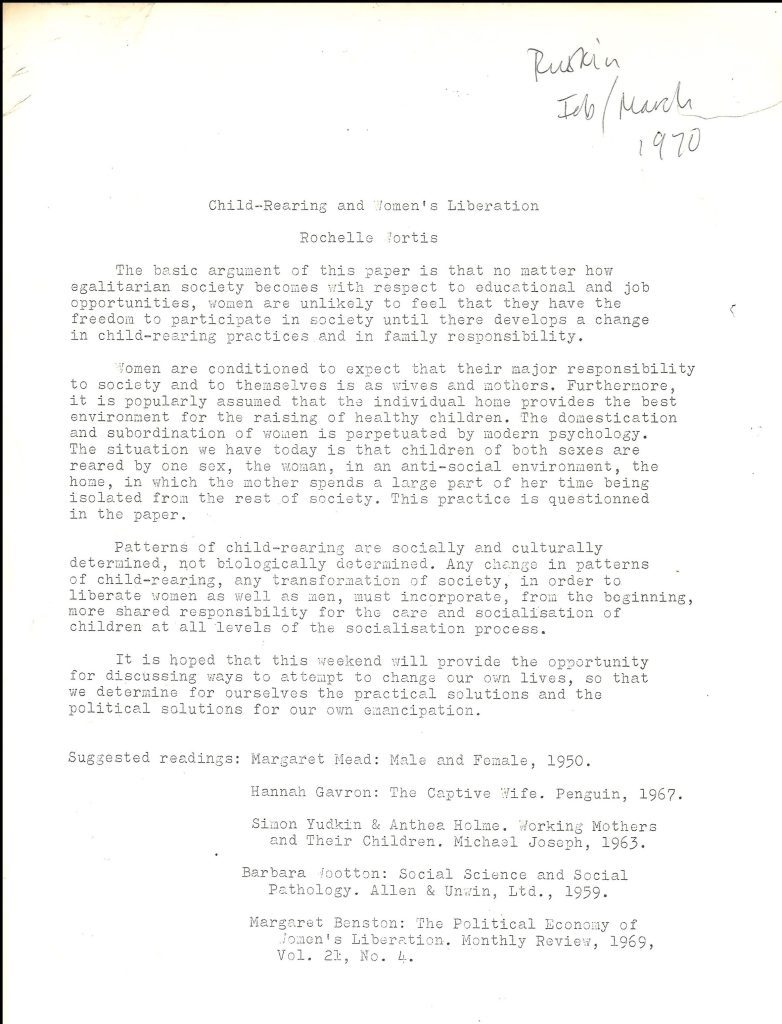
‘The domestication and subordination of women is perpetuated by modern psychology’
The words of Rochelle were probably echoed by many women who attended the conference. Caring for children was a very big concern and, however equal society became in terms of education and job opportunities, women believed that there would not be real equality until there were changes relating to how and who cared for the children and until there was a shift in family responsibilities.
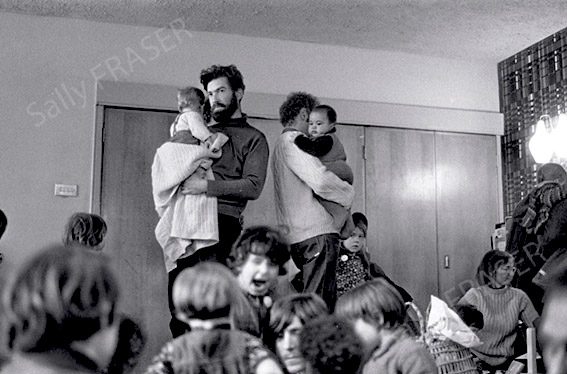
Women’s employment was another big area of discussion. In the below typescript, Arielle Aberson provides statistics about women’s employment concluding that there were increasing numbers of women over 35 in the workforce, mainly working part-time and mainly involved in clerical work or unskilled work.
A very small proportion of women were employed in professional, scientific and technical jobs which was a fast-growing area of employment to which men were geared.
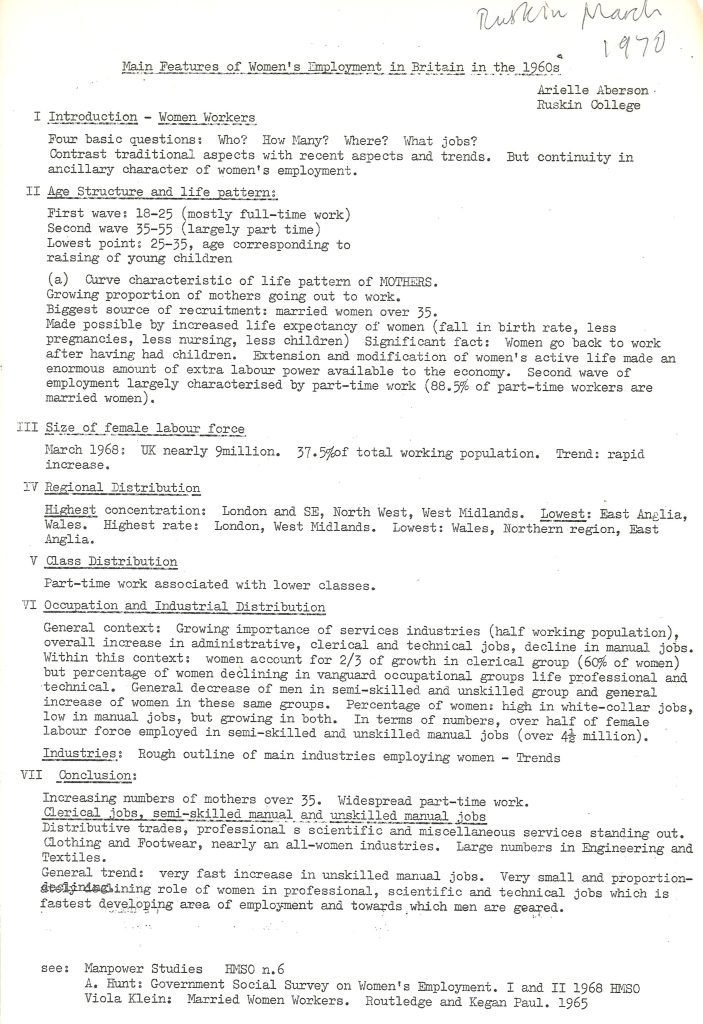
The below typescript is anonymous but it encapsulates the sentiment of many women who were angry and wanted change in society. There’s a real sense that this conference was the beginning of something that could be big:
‘Women’s liberation so far has been a ripple on the water. How easy it would be to make a tidal wave!’ This speaker didn’t want to change existing roles between men and women but ‘what’s needed is the attack on the totality of life-styles to destroy all roles.’
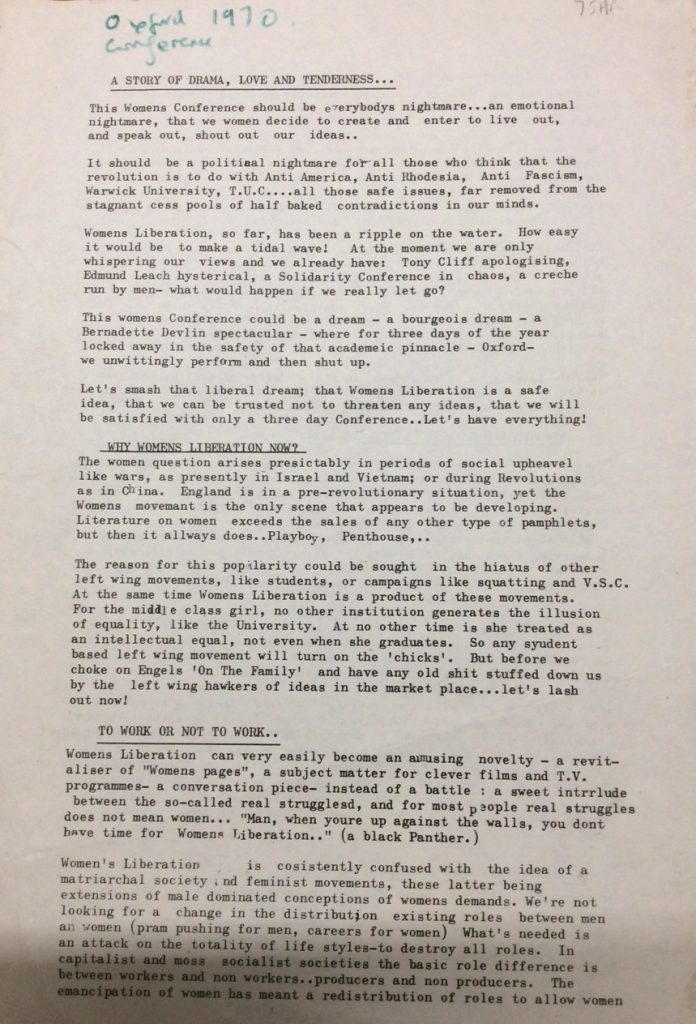
The organisers were interested in collecting some general views of the women who attended the conference and put together this questionnaire. Although the text is faded, the questions it presents are revealing. Question 2 is an interesting question: ‘What do you feel is the most important wrong with women’s position in society?’ There were questions about whether women liked being a housewife. Other questions were about child-care and about married life. The last question on this page:
‘When you were a child did you have ambitions other than to get married and have a family?
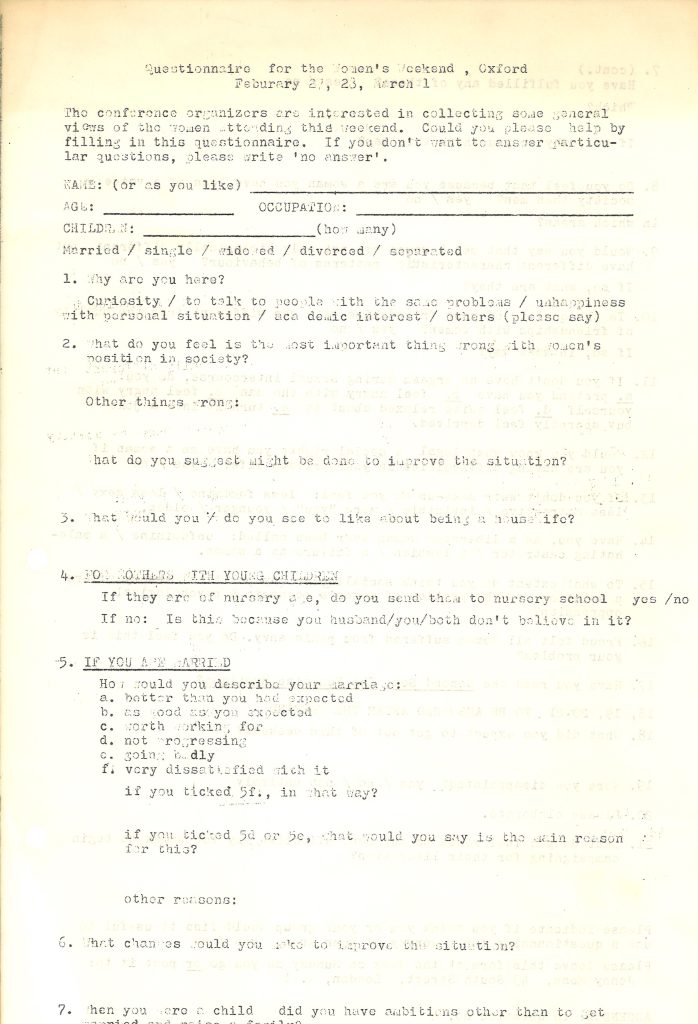
Further information:
In spring 2020, LSE Library mounted an exhibition ‘Social Revolution: women’s liberation and gay liberation in the 1970s and 80s’ to mark 50 years since the first women’s liberation conference and the first meeting of Gay Liberation Front, which occurred at LSE in October 1970. You can find out more about some of the items that were displayed in this exhibition here.
You can find out more about the beginning of women’s liberation in Britain in this blog post.
And more about our women’s liberation movement archives here.
~ Words by Dr Gillian Murphy
Dr Gillian Murphy is the Curator of Equality, Rights and Citizenship at LSE Library. She worked at the Women’s Library as an archivist for many years before it was transferred to LSE in 2013. Discover more about the work of The Woman’s Library on their website.
Modern Art Oxford would like to thank Sally Fraser for her photography of the Women’s Liberation Conference, and Mica Nava, Emeritus Professor of Cultural Studies at the University of East London for her generous research support.
The theme of International Women’s Day 2021 is #ChooseToChallenge. Join in with IWD 2021 activities here.
